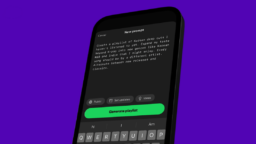The National Music Publishers’ Association (NMPA) has called on Congress to make a change to copyright law in the United States that would give US music publishers the freedom to choose how their music is licensed to music streaming services.
According to the NMPA, Congress “should allow rightsholders the choice to license through the [Mechanical Licensing Collective] using the statutorily set royalty rates or to withdraw from the MLC and operate in a free market if they meet certain conditions”.
This legislative proposal was made in a letter submitted by NMPA President and CEO David Israelite to the House and Senate Judiciary Committees today (May 21) and aims to solve what the NMPA calls the “continued abuse of the statutory system by digital services”.
The NMPA’s proposal arrives amid an ongoing feud between US music publishers and Spotify, following SPOT’s decision at the beginning of March to reclassify its Premium Individual, Duo, and Family subscription streaming plans as ‘bundles’ because those plans now offer access to audiobooks.
Under a 2022 legal settlement greenlit by the Copyright Royalty Board (CRB) – aka Phonorecords IV – music publishers and music streaming services agreed that ‘bundle’ services in the US are permitted to pay a lower mechanical royalty rate to publishers and songwriters than standalone music subscription services.
Last week, the MLC filed a lawsuit against Spotify, claiming that, by applying the rate formula applicable to Bundles to its Premium subscriptions, Spotify is underpaying royalties due to songwriters and publishers, and that Spotify’s position does not comply with the law.
“Because the law prevents private negotiations in a free market, publishers and songwriters have seen ongoing abuse of the statutory system and CRB rate-setting process with little ability for recourse.”
David Israelite, NMPA
The MLC is the non-profit organization designated by the US Copyright Office to ensure that music streaming services like Spotify pay the mechanical royalties they owe to songwriters and music publishers.
The org said in its lawsuit that “Spotify’s assertion that Premium is now a Bundled Subscription Offering is directly at odds with the Section 115 regulations that the MLC has primary responsibility for interpreting and applying”.
A Spotify spokesperson said in a statement last week that, “The [MLC’s] lawsuit concerns terms that publishers and streaming services agreed to and celebrated years ago under the Phono IV agreement.”
They added: “Bundles were a critical component of that settlement, and multiple DSPs include bundles as part of their mix of subscription offerings. Spotify paid a record amount to publishers and societies in 2023 and is on track to pay out an even larger amount in 2024. We look forward to a swift resolution of this matter.”
In the United States, the compulsory license, also known as the 115 License (because it is stipulated under section 115 of the Copyright Act) allows eligible digital services to use copyrighted music for a set fee without having to negotiate directly with rightsholders.
The blanket license covers the reproduction and distribution of “nondramatic compositions” – not sound recordings. Recorded music rightsholders – aka record labels – are able to negotiate directly with digital service providers.
The Mechanical Licensing Collective (the MLC), established by the landmark Music Modernization Act of 2018, is the sole entity authorized to develop and administer a mechanical licensing system.
According to David Israelite: “Those who do operate in a free market, such as record labels, have negotiated protections against these bad faith tactics. However, music publishers and songwriters have no such leverage under the CRB to do so.”
Elsewhere in today’s letter to the House and Senate Judiciary Committees, the NMPA’s David Israelite writes that, “because the law prevents private negotiations in a free market,” music publishers and songwriters “have seen ongoing abuse of the statutory system and CRB rate-setting process with little ability for recourse”.
He added: “Most recently, Spotify has found a new way to game the statutory rate system to underpay rightsholders by hundreds of millions in royalties.”
Israelite argues that by “making one simple change” to copyright law in the US, “Congress can undo a more than 100-year old mistake in the compulsory license, and ensure songwriters and music creators continue to benefit from their creative efforts”.
“It would provide a needed point of leverage for songwriters and music publishers to negotiate with streamers, like Spotify, who can otherwise use their power to bend government regulations to their advantage.”
David Israelite, NMPA
The letter continues: “This would give rightsholders the option to stay within the current compulsory system or to operate within a free market. It would also restore basic principles of fairness to the market by requiring streaming platforms to deal with music makers as partners.
“Finally, it would provide a needed point of leverage for songwriters and music publishers to negotiate with streamers, like Spotify, who can otherwise use their power to bend government regulations to their advantage.
“All of this could be accomplished by building on the successful infrastructure created by the MMA and the MLC.
In response to the NMPA’s letter, Graham Davies, President and CEO, DiMA, said: “The music industry as a whole, particularly publishers, songwriters, and streaming services, depend on the Section 115 blanket license, established by the Music Modernization Act (MMA), to operate.”
He added: “It is disappointing that the NMPA would propose dismantling the MMA in this way. The statutory blanket license is essential to the Music Modernization Act’s very structure. Without it — and crucially, the blanket coverage that it provides — the MMA falls apart and the industry will revert to the inefficient and fragmented licensing regime that existed before the MMA became law.
“The MMA was necessary when it was signed into law, and today, underpins the mechanical licensing system. DiMA remains committed to the MMA – a landmark piece of legislation that was supported by every corner of the music industry and passed both chambers of Congress unanimously just over five years ago.”
You can read the NMPA’s letter in full below:
Dear Chair Durbin, Ranking Member Graham, Chairman Jordan and Ranking Member Nadler:
The Music Modernization Act (MMA) has offered not only songwriters and music publishers, but also digital service providers, unprecedented benefits. However, the bill has amplified the need for corrections to the century-old compulsory license governing their work.
Large, foreign-owned companies, like Spotify, should not enjoy unfair advantages over American songwriters because of outdated federal policy. By making one simple change, Congress can undo a more than 100-year old mistake in the compulsory license, and ensure songwriters and music creators continue to benefit from their creative efforts.
How did we get here? Almost six years ago, members of the House and Senate Judiciary Committees came together to pass the MMA, a landmark piece of copyright legislation for the age of digital music streaming. The MMA took important steps forward in improving the compulsory license imposed on songwriters and music publishers by creating the Mechanical Licensing Collective (MLC) to administer a blanket license under Section 115 of the Copyright Act, which is taken by digital music services.
The MLC increased transparency through a public database, furthered licensing efficiency through a central administrator, and improved the process for distributing musical work royalties. However, the benefits did not extend to, or remedy, the ongoing issues faced by rightsholders subject to the government rate setting process.
The continued abuse of the statutory system by digital services, most recently Spotify, has made clear that additional action by Congress is needed.
The royalty rates paid to musical work copyright owners for uses of those works under the Section 115 blanket license are set in a proceeding before the Copyright Royalty Board (CRB), within the Library of Congress, once every five years. In these proceedings, music publishers and songwriters must face off against some of the biggest tech companies in the world: Spotify, Apple, Amazon, Google, among others to establish rates for the use of musical works.
Because the law prevents private negotiations in a free market, publishers and songwriters have seen ongoing abuse of the statutory system and CRB rate-setting process with little ability for recourse. Most recently, Spotify has found a new way to game the statutory rate system to underpay rightsholders by hundreds of millions in royalties.
In March, Spotify began manipulating the compulsory licensing rules and reclassified its premium subscription music service, along with almost 50 million subscribers, into what it is calling a “bundle.” The benefit to taking this action is, under the compulsory royalty rates, bundles attribute less revenue – and therefore pay less in royalties – to the music than a premium subscription music service. Spotify has taken a part of its music service that was previously offered to consumers for free, audiobooks, and it is now calling audiobooks a bundle with its music service to substantially reduce the musical work royalties owed.
Those who do operate in a free market, such as record labels, have negotiated protections against these bad faith tactics. However, music publishers and songwriters have no such leverage under the CRB to do so.
Fortunately, there are solutions Congress can enact that would preserve the benefits of the MMA and the MLC while providing songwriters and publishers a better chance to compete on a level playing field with Big Tech firms like Spotify. Rather than picking who wins and who loses, Congress should allow rightsholders the choice to license through the MLC using the statutorily set royalty rates or to withdraw from the MLC and operate in a free market if they meet certain conditions.
If copyright owners chose to withdraw their copyrights from the blanket license, currently administered by the MLC, they would be required to do the following:
- Require all rightsholders who exercise this option to provide 6 months’ notice to the Register of Copyrights and the MLC;
- Require that the withdrawing rightsholders ensure their musical work copyrights and ownership interests are registered in the MLC’s public database;
- Require the MLC to flag those rightsholders and their catalogues as withdrawn from the MLC blanket license and subject to voluntary license negotiations; and
- Require copyright holders to maintain with the MLC database current, up-to-date contact information, which would be used to contact for licensing.
This would give rightsholders the option to stay within the current compulsory system or to operate within a free market. It would also restore basic principles of fairness to the market by requiring streaming platforms to deal with music makers as partners. Finally, it would provide a needed point of leverage for songwriters and music publishers to negotiate with streamers, like Spotify, who can otherwise use their power to bend government regulations to their advantage. All of this could be accomplished by building on the successful infrastructure created by the MMA and the MLC.
Sincerely,
David Israelite
President and CEO
NMPAMusic Business Worldwide





